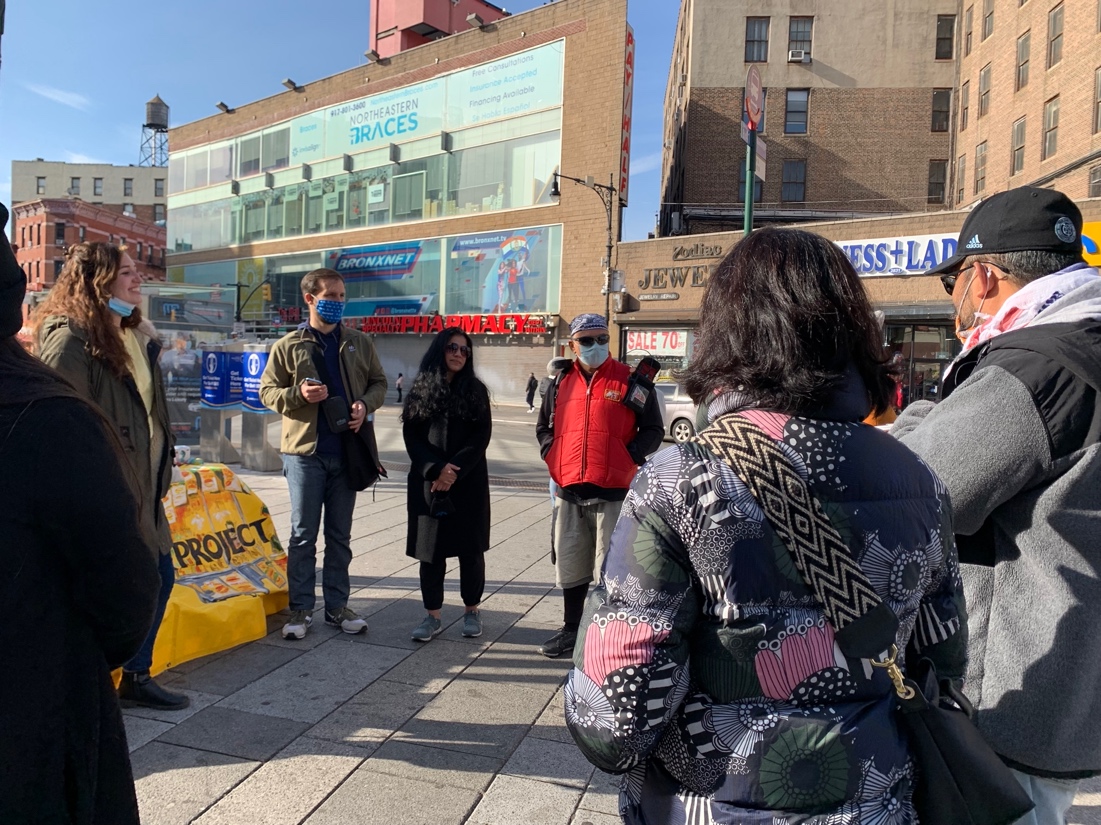The Street Vendor Project continued its third week scavenger hunt at the Roberto Clemente Plaza in Mott Haven last weekend.
The month-long scavenger hunt runs from Nov. 14 to Dec. 14 and launched in Corona Plaza, Queens, with over 80 street vendors located in the plaza.
Participants then traveled to different areas like the South Bronx to compete in challenges, win prizes and meet street vendors in different boroughs.
Amri Abouseman and Adrian Hashimi are Harlem residents who took part in the scavenger hunt and finished first among four teams taking part on Sunday. They had traveled to Staten Island and other boroughs to finish the hunt.
For both Abouseman and Hashimi, it was one way they were able to meet with different vendors across New York City.
“We lived in New York City for about 29-30 years now. We always take them for granted. We always stop and buy stuff and did not realize what they are going through,” Hashimi said.
There are approximately 20,000 street vendors across New York City according to the Street Vendor Project and most street vendors are immigrants and people of color.
Jennifer Salgado, the lead organizer for the Street Vendor Project and a Bronx resident, has a personal connection with street vending because her mom was once a street vendor on Fordham Road.
Salgado has heard unique stories of how many immigrants across the South Bronx have resorted to street vending because of the pandemic, and how many have faced harassment by different agencies.
“The scavenger hunt is aimed to focus on the street vendors, to bring people to different neighborhoods to look at the state of street vending in different boroughs, to support street vendors and to get to know them because often we don’t engage with our street vendors,” Salgado said.
Clarito Joyas is one of the street vendors on the corner of Roberto Clemente Plaza.
Joyas sells jewelry from Ecuador. She works from morning to night to make ends meet for her family because her husband recently fell ill, and she must take care of her youngest son with special needs.
“In this place, you need to have courage. I was working for days and getting $5. I was working every day dealing with the cold,” Joyas said.
For many street vendors, selling on the street is their only option, as many of their jobs have disappeared during the pandemic. Also, obtaining a permit to sell is exceedingly difficult, leading some Assembly members to propose legislation to legalize street vending.
Only 2,800 full-time citywide permits are given out for a two-year period, according to NYC Business Solutions. The number of permits issued compared to the number of operating street vendors shows that most vendors in New York City are selling without permits.
Tara Gitter, chief of staff to Bronx Assemblywoman Amanda Septimo, came out to support the street vendor project and the fight for legal licensure for street vendors. After multiple sightings of street vendors being penalized for being on the street. Gitter is hoping that a bill can be passed to support their businesses.
“A lot of the street vendors are relying on this job to feed their families and many of them whom we spoke to today want access to a legal license,” Gitter said.
Despite the push for legalizing street vending, many local businesses fear that having more street vendors may drive away businesses from their establishments. Others also oppose street vending because street vendors do not have to pay rent, utility bills and taxation costs.

